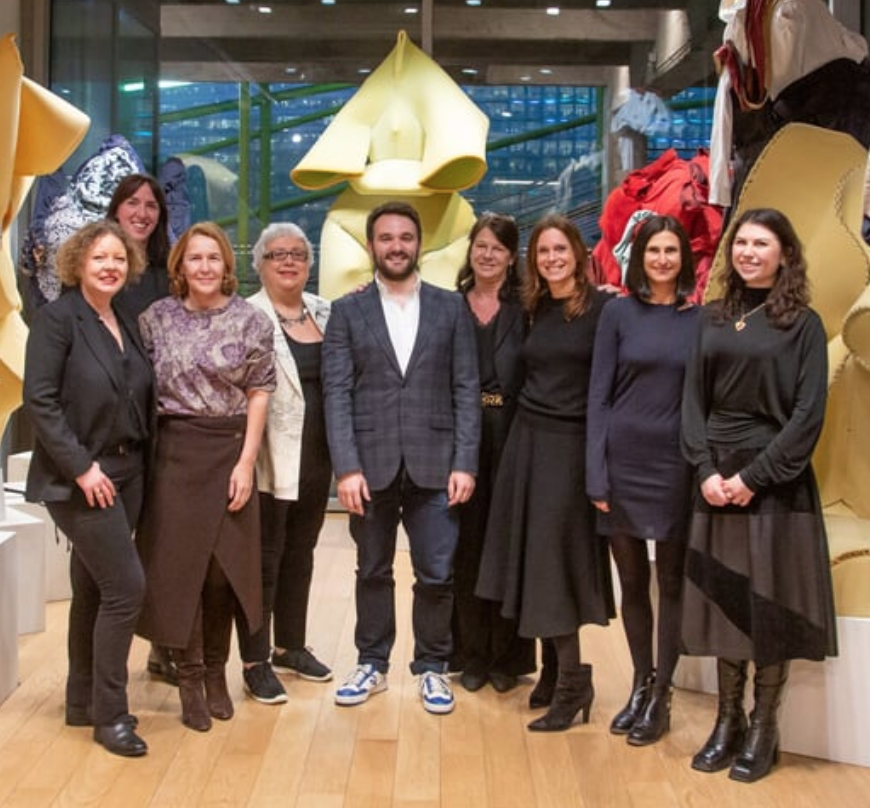
When we embarked on the association project, social and environmental responsibility issues were still not at the heart of the sector’s concerns,” explains Isabelle Lefort, co-founder of PGF. We had set ourselves the goal of making Paris the capital of more responsible fashion, with the 2024 Olympic Games as a key deadline. We wanted to tackle these issues in a concrete, operational and collective way. We now have around a hundred member companies and organisations representing 60% of the market. One of our successes is that each member has one vote, but contributes to the financing to the extent of its turnover. And I think we’ve won our bet to make Paris a more responsible fashion centre”.
With the Olympic Games set to bring the French capital to life next summer, and ten days of Men’s Fashion Week and Haute Couture Week already underway in Paris, the association is taking stock of the past few years and the advances that have been made in the sector. In particular, it has supported the pooling of best practices for fashion events. Even though, since the Covid period, Fashion Weeks have taken on a major role, with more and more physical events, the sector has made progress.
“This was one of the first areas in which the various players moved forward collectively, and practices have really evolved, with commitments that are now much more respectful of the environment”, says Isabelle Lefort.
A practical, collective approach
Since 2019, the association, now chaired by Sylvie Bénard, claims to have supported around fifty initiatives, including the creation of a practical guide to the principles of sustainable development for young fashion designers, involvement in the Tricolor project, which aims to revive a French wool industry, initiatives on the production of masks during the Covid-19 pandemic, and the mapping of sustainable fashion players. Its activities range from raising public awareness to exploring issues of eco-design and inclusive design. And the people it works with praise its practical approach and the speed with which its projects can be put into action.
The citizens’ consultation carried out through Made.org throughout France with a number of key players in the sector has enabled it to raise the expectations of more than 100,000 consumers. But it is above all through its tools, developed in contact with the field, that Paris Good Fashion is proving its usefulness to the sector, creating in particular a guide to digitalisation and a guide to second-hand clothing, as well as a guide to sustainable images. Today, what attracts the most visits to our site is the sustainable fashion glossary,” explains the founder. It’s because the sector needs a common vocabulary to work in the same direction”.
In addition to providing guides and advice, the association has also launched a number of very practical projects over the past six months. The experiment to reduce the use of coat hangers and polybags raised an issue that had not been quantified and, above all, that no organisation wanted to tackle alone. After analysis and testing in the Paris region, this approach will be rolled out nationwide. With this in mind, the association is currently setting up a project to reduce and pool transport, as well as an analysis of the real impact of regenerative agriculture on companies’ carbon footprints.
These are all subjects that will not stop in 2024. We have seven projects to roll out by 2024, including progress on the Act (Assessing Low Carbon Transition) methodology, on which we have worked with Deloitte, Ademe, the World Benchmarking Alliance and Climate Chance,” explains Isabelle Lefort. The methodology aims to measure companies’ decarbonisation strategies. We’re going to have to step up the pace over the next few years, because companies and the sector are faced with consumer expectations and a legislative arsenal that is being put in place on these issues, with no fewer than sixteen European texts that will provide a framework for practices over the next few years. These are challenges that companies cannot meet alone. We have already worked on the roadmap for the period 2024-2030. Now we’re talking about making Paris an exemplary capital for sustainable fashion by the end of the decade.”
To raise its profile and take its vision international, the association has recruited François Souchet, who for the past five years has worked on major events for the Ellen MacArthur Foundation, which campaigns for a circular economy.
To go even further, the association’s management intends to avoid duplicating the work of other bodies and to focus on urgent issues such as decarbonisation, but also inclusiveness, the scaling up of new models and the industrialisation of material recycling solutions.
Read more – Fashion Network
